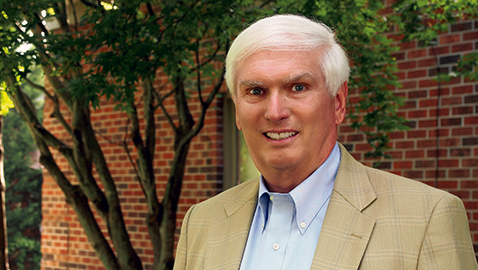By John J. Duncan Jr.
My late wife, Lynn, was born and raised in Sewanee where her father and grandfather managed the grocery section of the University Supply Store for a combined total of more than 70 years.
Lynn had a book entitled “Sewanee Sampler,” published in 1978, which she saved over the years because it has a little of her family history in it.
The book has many stories that would even be interesting to people who have never had any connection to the town or its university (as it) shows how drastically times have changed.
One story entitled “Dope,” tells of the controversy that erupted over whether to allow the sale of Coca-Cola on campus. The book’s author, Arthur Ben Chitty, tells the story this way:
“At a trustee meeting about 1902, Chaplain William Alexander Guerry proposed a resolution, supported by suitable oratory, that the sale of ‘dope’ (Coca-Cola) be prohibited.
“Students, pre-warned of this maneuver, delegated resourceful young Biddy Smith ’03 to spy on the meeting.
“Under a window he heard various opinions concluding with a statement from Bishop Ellison Capers of South Carolina. He himself had imbibed three successive cokes, he confessed, and finding them of no effect whatsoever had returned to mint juleps.
The motion was tabled, but the controversy did not end, and, as Paul Harvey used to say, here is the rest of the story as told by author Chitty in the story “Back to the Ramparts.”
“Chaplain Guerry, however, was not easily defeated. Come 1906 and with pro-Coke ranks thinned by absence, there arose Zadok Daniel Harrison to move that a special committee be appointed to investigate the question of the sale of Coca-Cola and its harmfulness.
“The Bishop of George moved further that since from reliable statements Coca-Cola is seriously detrimental to students, and especially officers of the university, discourage the use of this beverage.
In 1907, the committee asked for another year to study the matter, but that year, Chaplain Guerry was elected Bishop of South Carolina, and the book says that “with the departure of Coke’s arch-enemy, students relaxed, and before long students were quaffing their dopes openly.”
I can remember a time when some people referred to cokes as dopes. And I also remember my grandfather, Papa Duncan, saying he wouldn’t drink a coke, because even a dog wouldn’t drink coke, and he wasn’t going to drink something that a dog wouldn’t drink.
The book also has many interesting stories about Sewanee football teams which may be surprising to modern-day UT fans.
The book reports that in the Sewanee Alumni News of Feb. 15, 1949, “Sewanee football teams have beaten Alabama 10 times, Tennessee 11 times, suffered far worse at the hands of Vanderbilt than any other rival, dealt more severely with Cumberland (15 wins, 1 defeat) than any other…done better than 50-50 with (among others) Ole Miss, LSU, Georgia, Georgia Tech and Auburn…had a perfect record spoiled by Vandy seven times…..”
In 1906 and 1907, undefeated Sewanee teams had outscored their opponents by totals of 211 to 5 and 238 to 10 before losing to Vanderbilt by scores of 20-0 and 17-12.
Coach Shirley Majors, the father of the late Tennessee coach, Johnny Majors, led the 1958 Sewanee team to its first undefeated season in 59 years.
Shirley Majors’ wife, Elizabeth, told author Chitty in 1978 that this undefeated ’58 team led to such jubilation that the university president declared a holiday, and students took breakfast in bed to all the players and coaches. However, Coach Majors was such an early riser, he was gone when the students brought his breakfast. However, he was later given a “generous” check by the university “to use for something personal.”
One final story: “George Rill ’29 of Houston was an exemplary young man in every way. A football tackling device fell on him causing a concussion and spinal injury. He was rushed to the Vanderbilt hospital where the doctor, after examination told him he could not live. Two fellow students were in the room, much unnerved, and one of them offered him a cigarette. George said, ‘No thanks, I’m in training.’”







